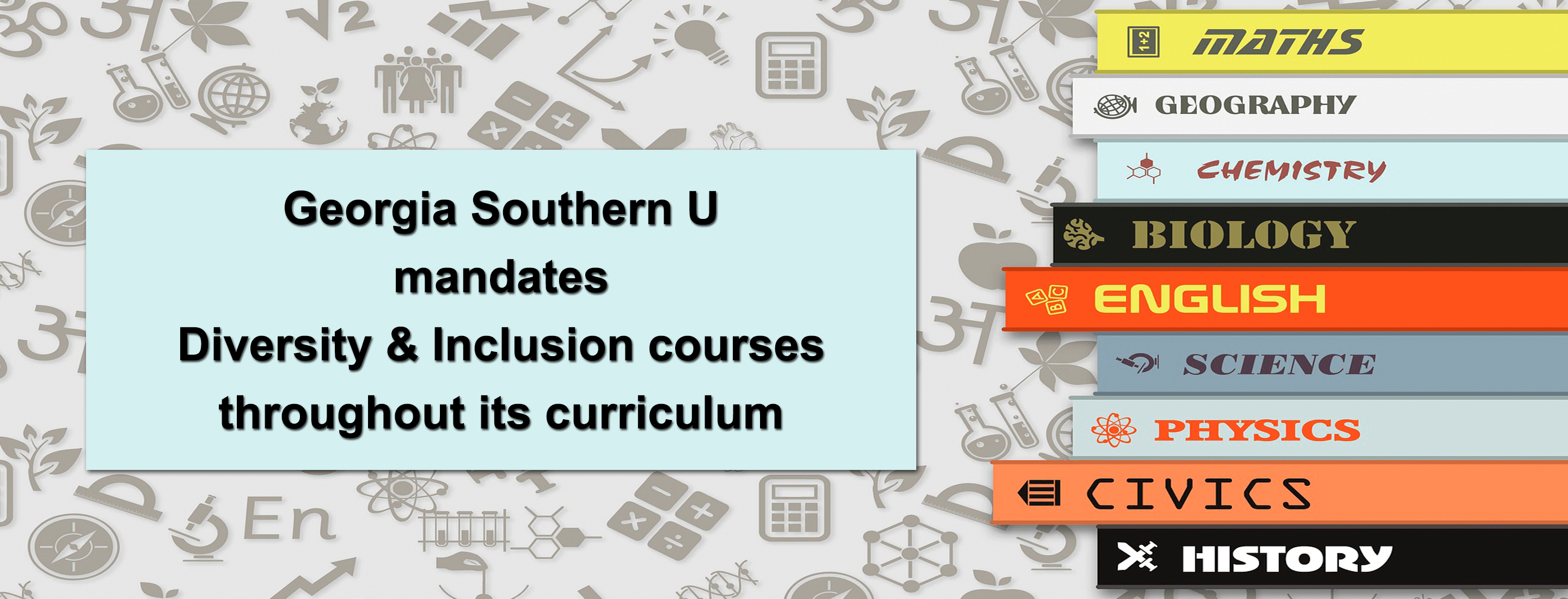
by Rose Laoutaris
On November 3rd, the Georgia Southern University Student Government Association passed a resolution which states that GSU will be implementing mandatory diversity and inclusion courses into their first and second year experience courses starting in the fall of 2019.
Carl Reiber, the GSU Provost and Vice President for Academic Affairs, said, “We would like to integrate diversity and inclusion throughout the curriculum to reinforce the importance of this at many levels of the curriculum. Not just a single course.”
However, the only course announced so far has been LEAD 3900 where, according to the course description, “[s]tudents will learn about the three primary leadership skill areas for serving as an effective Community Leader: peer helping skills (active listening, mediation, conflict management), multicultural competence and building inclusive communities.”
The GSU SGA resolution states that these mandated diversity and inclusion courses are necessary because “[t]here are racial and cultural tensions within the student population of Georgia Southern University” and cited an incident where a student used the N-word in a text message to her black roommate. It also says, “Many overlook the need to develop the cultural awareness of students, but looking at the diversity of the workforce as well as the diversity of our university, it is counterproductive to let students ignore the truth that is diversity.”
A junior at GSU, Alfredo Small, told Campus Reform,
I am black and Filipino, and I think that this is one of those situations where, although the road is paved with good intentions, this was poorly executed… Being that this course is required, this is going to generate more dissent from students. Classrooms are not an organic way to teach people to accept others. You can’t map out social change. You can’t force it.
Mr. Small’s assessment is correct, according to a study by Harvard Professor Frank Dobbin and Tel Aviv University Professor Alexandra Kalev published in the Harvard Business Review.
The study looked at financial institutions where diversity and inclusion training courses were mandatory and found that after five years, minorities were in no better position than they were before with the proportion of minority managers remaining the same or decreasing. They found that this occurred because “[p]eople often respond to compulsory courses with anger and resistance,” and Kalev told Fox News in an email that “[m]andatory diversity training sends exactly the message of control- and psychological research shows us time and time again [that] people resist control.”
Not only do these diversity and inclusion training courses not work, but there is hardly a reason for them at GSU. The main reason for these courses was an incident where a student used the N-word in a text message to her roommate, but this led many other students to protest and speak out against racism, showing that the majority of GSU students are not racist.
If almost all students at Georgia Southern University are tolerant and accepting of others and diversity and inclusion training courses have proven to not work, why would the university force students to take them? These courses are a waste of both the students’ time and money. They should not be mandated to take them.
Concerned students should talk to the university and student government and convince them to get rid of this requirement. They should also continue to speak out about the ridiculousness of these courses and explain why they will not achieve their intended goal.
Rose Laoutaris is a 2018 fall intern.

